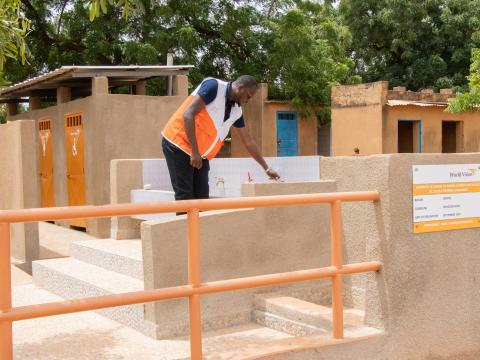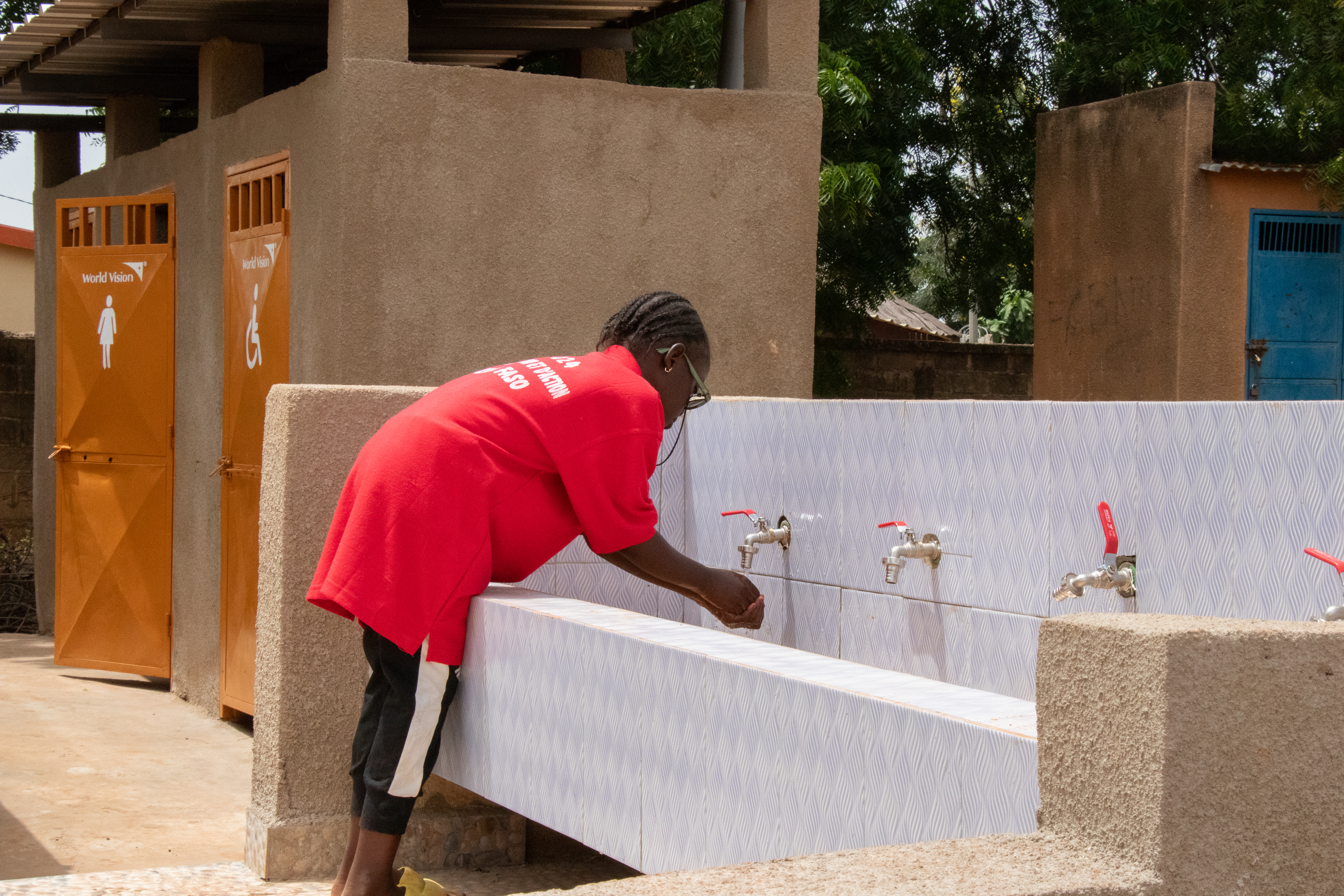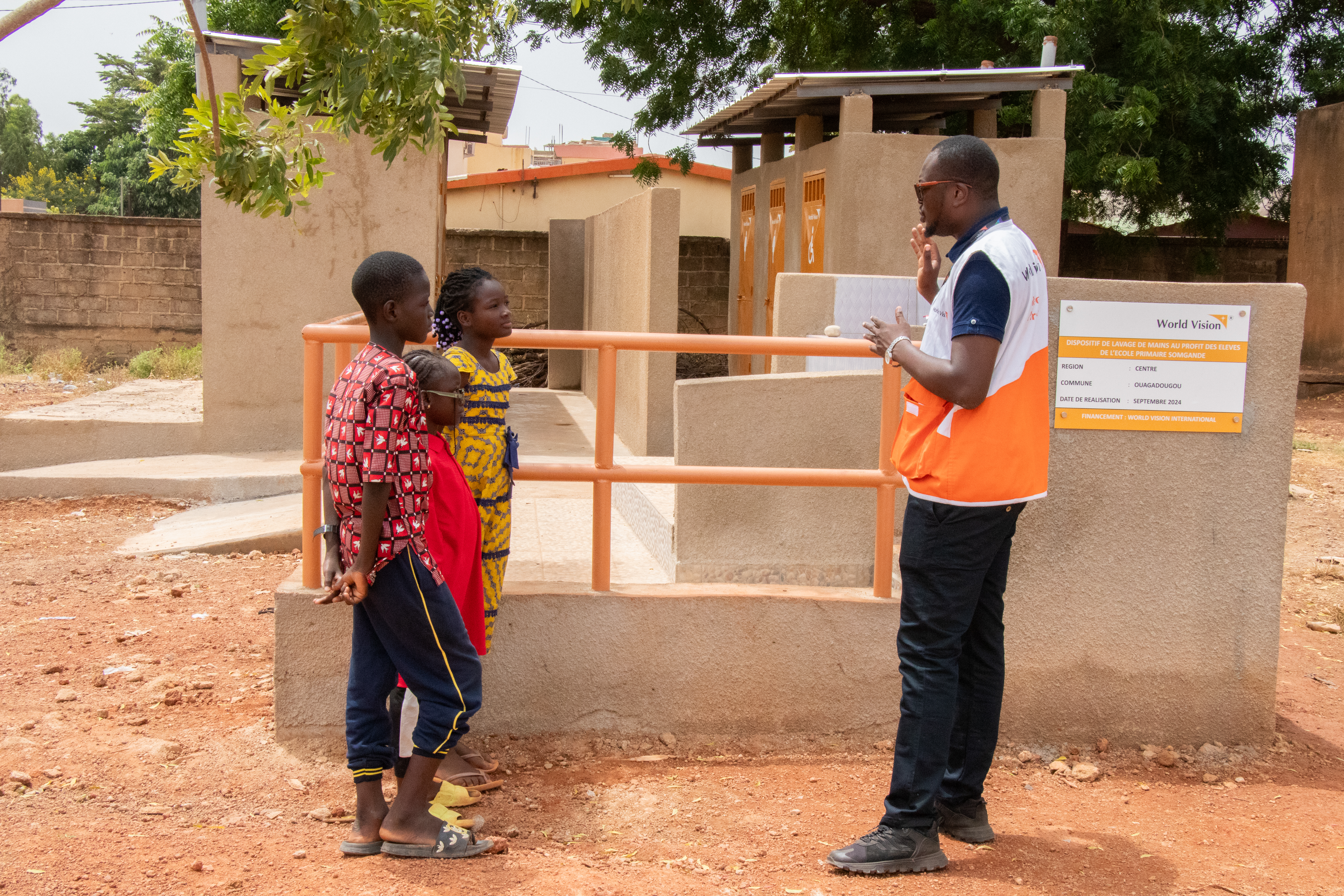Access to Safe Toilets, a basic right for Health, Dignity and Social inclusion!

By Mohamed El Habib CISSE, Communication Officer
Noura is in second grade at Somgandé Primary School on the outskirts of Ouagadougou, but she is already well aware of the importance of toilets and hygiene in maintaining her health and a healthy living environment. At just 11 years old, she says she wants to become an ambassador for hygiene among her peers. In 2024, with funding from World Vision US, World Vision teams built two blocks of Ventilated Improved Pit (VIP) latrines at her school, taking gender and inclusion into account by separating the latrines into sections for girls, boys and people with disabilities.

“Before, students used to relieve themselves behind the old toilets, and the smell bothered us a lot in class, but now it’s fine,” Noura explains.
By relieving themselves in the school yard, students exposed themselves to numerous infections and risks of abuse and sexual violence, especially for young girls. Access to safe toilets is a fundamental right, essential for maintaining health and dignity. In addition to the convenience that latrines provide to students and teachers, they also address needs related to hygiene, sanitation and, consequently, public health. Safe sanitation facilities at school also enable girls to better manage their menstruation.
Agnès Ouédraogo, the school director of the Somgandé "A" primary school, says: "We really needed this infrastructure, which has significantly improved the children's daily lives in terms of hygiene and sanitation," and praises World Vision's initiative.
In this three-school complex, which serves more than 1,600 students from host communities and displaced households, World Vision Burkina Faso also rehabilitated the mechanised solar water system, built two standpipes, and installed two hand-washing facilities outside the latrines. A management committee has been established, trained and equipped to maintain the infrastructure, with the active participation of the students, who are regularly sensitised on good hygiene practices.

Since our first interventions in Burkina Faso, World Vision has implemented several innovative projects that have provided communities, schools and health centres with safe access to hygiene and sanitation infrastructure. Our team has also reached more than 137,000 people through awareness-raising activities to encourage communities to adopt better hygiene and sanitation practices to prevent water-related diseases.
According to Ferdinand Sawadogo, World Vision's water, hygiene and sanitation specialist: "From 2022 to 2024, we have enabled 43,859 people, including 20,783 children, to access proper sanitation facilities. However, much remains to be done to ensure universal and equitable access to drinking water, hygiene and sanitation for all in order to achieve the 6th Sustainable Development Goal by 2030."
Recognised for its expertise in water, hygiene and sanitation, World Vision continues to mobilise communities to work together to build resilient, efficient, accessible and safe water and sanitation services for all.